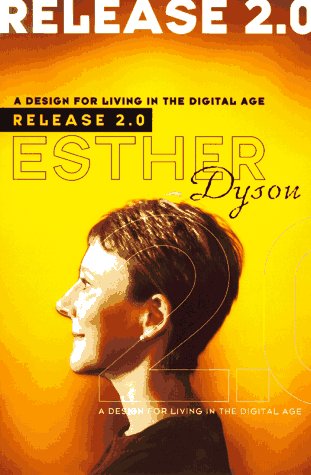The Market is Not Darwinian
What is a market? And what does it have to do with the Internet? The fashion right now, one I follow, is to think of the Internet as a living environment, a place for societies, communities, and institutions to grow--rather than as something constructed, a superhighway, for example. That leads to appropriate metaphors, looking at the Net as something to be cultivated and nurtured rather than built or engineered. (Only its rules need to be designed so that it can grow in good health.) The structure has to emerge from individual action rather than from some central authority or government. The guiding metaphor is evolution. Evolution is natural, the thinking goes. And markets are just a faster form of evolution.
But I'd like to disagree--or take the metaphor a step further. First, markets are not just a form of evolution, commonly considered survival of the fittest. Markets have rules and enforcement mechanisms agreed on (more or less) by all players. And second, what does the survival rule apply to: Is it people? Is it firms? Is ti the products or concepts the firms sell or operate on? And is it really the fittest? Or the best nurtured?
For starters, evolution is blind. Call it self-unaware. Its processes operate without visibility. Animals and plants live or die as a whole, eventually resulting in the evolution--creation or modification or dying out--of entire species. "Good" genes live on, fostering the survival features--whether wings or eyes or intelligence. And industrial analogy to such surviving features is the technology that runs motors--V-8 or diesel, for example. The technology lives on and spreads even as the individual cars and the brands and models that contain the engines disappear.
Markets are different. They are self-aware. We can see what is successful and what is not. What is the same is the decentralized approach, and tolerance for the destruction of bad ideas. Businesses and communities can adopt good ideas (or "memes") that they weren't born with. "Memes" act more like viruses than like genes. Whole firms do not need to live or die for the best memes to spread and the worst to die off. The market is more Lamarckian than Darwinian. In business, my favorite examples are how the concept of having a single fast-moving line feed several teller stations replaced the concept of several lines moving at different, unpredictable speeds spread through the bank lobbies of America in a matter of months. Likewise, the hub-and-spokes idea has "infected" the airline industry. Analogies for the Net will be rules in a community, business models, and the like. Some Net businesses and communities come and go, but others will be able to learn and acquire memes from those around them.
Notes:
The marketplace is not survival of the fittest, where an invisible hand allows for the emergence of the best strategies, but an artificial system where strategies, good or bad, are perpetually nurtured.
Folksonomies: economics science memetics
Taxonomies:
/health and fitness (0.521065)
/law, govt and politics/government (0.419402)
/business and industrial (0.363580)
Keywords:
single fast-moving line (0.928787 (neutral:0.000000)), evolution (0.803907 (positive:0.019470)), best memes (0.790781 (negative:-0.915899)), invisible hand (0.777547 (positive:0.245139)), best strategies (0.757605 (positive:0.245139)), survival rule (0.757187 (neutral:0.000000)), good health (0.754475 (positive:0.748754)), central authority (0.746503 (positive:0.455251)), individual action (0.744865 (positive:0.455251)), faster form (0.743554 (positive:0.827051)), enforcement mechanisms (0.742448 (neutral:0.000000)), survival features (0.740827 (positive:0.321834)), industrial analogy (0.739895 (neutral:0.000000)), unpredictable speeds (0.739247 (negative:-0.207154)), bank lobbies (0.736116 (negative:-0.207154)), teller stations (0.734035 (neutral:0.000000)), decentralized approach (0.733081 (neutral:0.000000)), entire species (0.728284 (positive:0.292267)), hub-and-spokes idea (0.724025 (neutral:0.000000)), favorite examples (0.724022 (neutral:0.000000)), airline industry (0.723181 (neutral:0.000000)), individual cars (0.722666 (positive:0.338202)), business models (0.710755 (positive:0.218073)), good ideas (0.709648 (positive:0.402669)), Net businesses (0.708826 (positive:0.425854)), bad ideas (0.707276 (negative:-0.687891)), markets (0.690728 (positive:0.827051)), firms (0.647200 (negative:-0.619157)), market (0.645928 (negative:-0.310996)), rules (0.645330 (positive:0.748754))
Entities:
line feed:FieldTerminology (0.977510 (neutral:0.000000)), airline industry:FieldTerminology (0.976902 (neutral:0.000000)), America:Continent (0.922934 (negative:-0.207154))
Concepts:
Natural selection (0.985376): dbpedia | freebase
Idea (0.882922): dbpedia | freebase | opencyc
Analogy (0.823646): dbpedia | freebase
Gene (0.813663): dbpedia | freebase
Metaphor (0.739004): dbpedia | freebase | opencyc
Lamarckism (0.709083): dbpedia | freebase | yago
Market (0.598378): dbpedia | freebase | opencyc
Evolution (0.597663): dbpedia | freebase | opencyc





